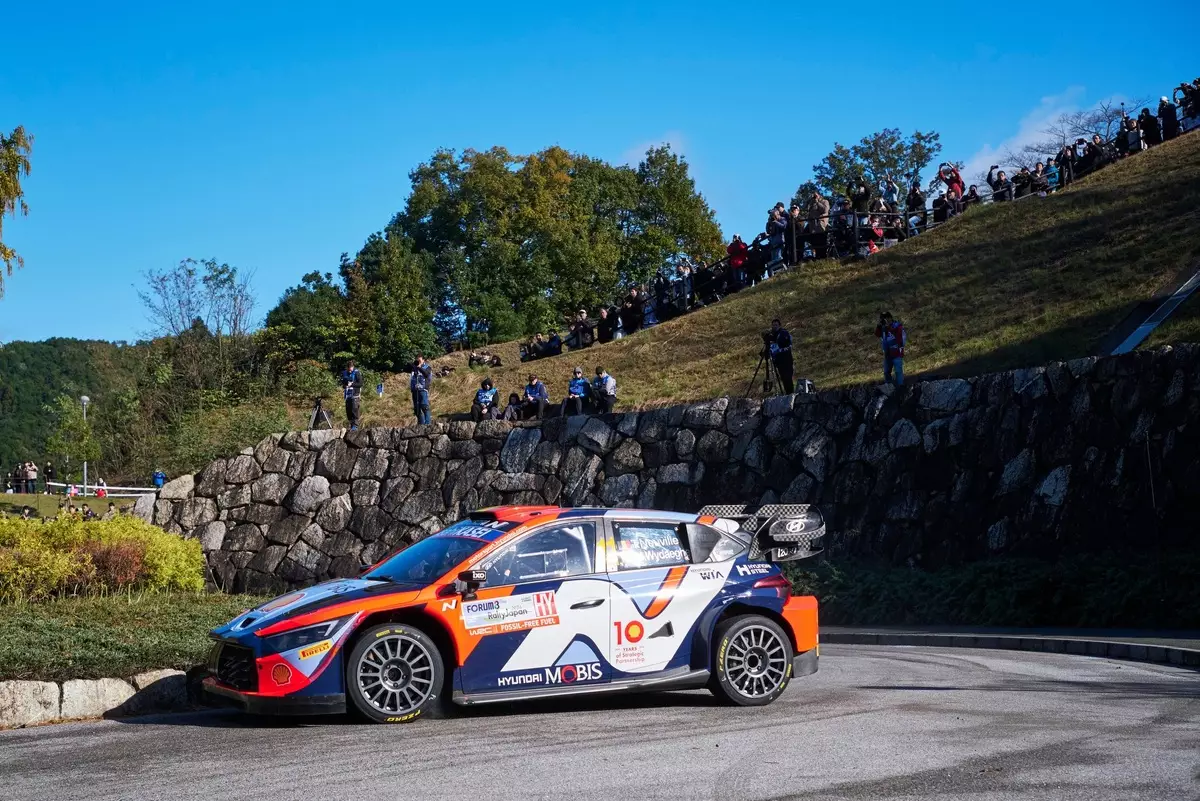Turbulent Times for Neuville at Rally Japan A Title Contender Oscillates Between Hope and Despair
Imagine the thrill of racing through winding roads, the engine roaring beneath you, and the stakes higher than ever. That’s exactly what Thierry Neuville, a standout in the World Rally Championship (WRC), experienced during the Friday stages of Rally Japan. It was a day filled with highs and lows as his Hyundai i20 N initially blazed ahead but then faltered unexpectedly. This sudden twist left Neuville grappling with a crucial 37.7-second gap from his teammate Ott Tanak, all while the championship title hung tantalizingly within reach.
For Neuville, this rally was not just another race; it was a potential career milestone. With only six points needed to clinch his first WRC title, every second counted. His journey began on a promising note, propelling him into second place after the opening stage. However, hopes were dashed as technical issues dragged him down to third place. The power loss turned into a significant hurdle, leaving him 40.2 seconds behind Toyota’s Elfyn Evans. The absence of midday service meant no quick fixes, adding to the mounting pressure on Neuville’s shoulders.
Despite these setbacks, Neuville and his co-driver Martijn Wydaeghe didn’t lose hope. During a brief road section, they attempted a preliminary diagnosis of their car’s troubles. Their cautious optimism suggested that perhaps the problem wasn’t as severe as initially feared—not mechanical or turbo-related. Yet, without clear answers or immediate solutions, the uncertainty loomed large over their chances. With only one other major mechanical issue in Kenya earlier in the season, Neuville’s hopes were precariously balanced on his team’s expertise and available resources.
Key Takeaways
- Thierry Neuville faced unexpected challenges during Rally Japan due to power loss in his car.
- The championship title was within reach if he could secure just six points over the weekend.
- Neuville and his team remained cautiously optimistic despite limited opportunities for repair.
- The unpredictable nature of rally racing highlighted how quickly fortunes can change.
As Neuville continued to grapple with the unforeseen power loss, he openly expressed his disappointment. He understood that remaining competitive required more than sheer determination; it demanded a fully functioning vehicle. “If we have to continue in ‘road mode’, we’ll lose significant time,” he admitted candidly. Meanwhile, engineers were working tirelessly to diagnose and rectify the issue to keep their title hopes alive. In those moments, his focus shifted from claiming victory to simply finishing strong amidst adversity.

Before these mechanical struggles surfaced, Neuville had been optimistic about his car’s setup for Rally Japan. The Hyundai i20 N performed admirably in initial stages, setting a promising pace for what could have been an excellent weekend. Reflecting on their early performance gaps, Neuville noted they were pleasantly surprised by their competitiveness against rivals like Elfyn Evans and Ott Tanak. Such reflections painted a picture of what might have been—a strong contender stifled by unforeseen challenges beyond their control.
As teams prepared to tackle the afternoon repeat loop and concluded with Okazaki Super Special stage, Neuville’s journey was emblematic of rally racing’s unpredictable nature. In this fiercely competitive environment where every second counts, triumphs are rarely linear paths but rather winding roads fraught with obstacles at every turn. Whether or not he secures the championship remains uncertain; what is clear is that resilience will be key if Thierry hopes not just survive but thrive amid such turbulent times at Rally Japan.
Final Thoughts
In motorsport—and life—challenges arise when least expected yet often provide profound lessons on resilience under pressure like never before seen here with Thierry’s experience at Rally Japan 2023 edition indeed encapsulating essence unpredictability inherent within sport itself! Although outcome uncertain until final flag drops one thing remains abundantly clear: regardless result achieved throughout journey undertaken thus far testament both driver co-driver’s unwavering determination excellence pursuit greatness despite facing seemingly insurmountable odds along way ultimately proving true measure any champion lies ability adapt overcome adversity whenever wherever necessary ensuring legacy lives long after dust settles track finally clears once again!
Neuville
Rally Japan
WRC
Hyundai i20 N
motorsport


Leave a Reply